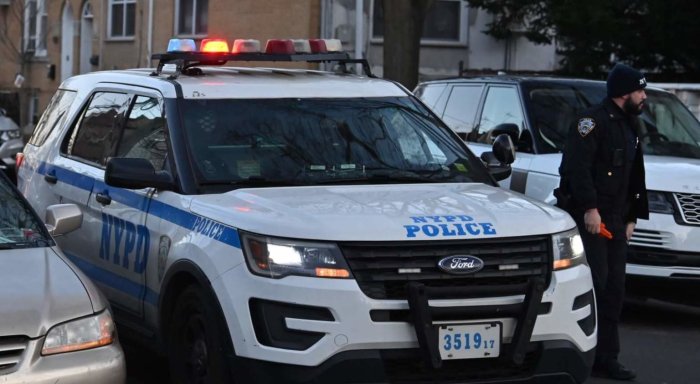Let’s consider the Queens mechanism for voting. Almost everyone agrees our voting machines are old, failing and need to be replaced. This is particularly important in close races.
What to replace them with? Not the Florida…
By Kenneth Kowald
Recalling the Recall, Part II
Let’s consider the Queens mechanism for voting. Almost everyone agrees our voting machines are old, failing and need to be replaced. This is particularly important in close races.
What to replace them with? Not the Florida chad system, obviously. How about some wonderful electronic devices? Sounds good, doesn’t it?
But hold on: If hackers can intrude into the marvelous world of electronic communication, couldn’t something like that happen in an election? Couldn’t the party in power steal the election? And this is not some musing from those who see conspiracies everywhere.
The price of democracy here and everywhere is eternal vigilance. Will the bright electronic future assure us of that? Reports from researchers at the Johns Hopkins University to Maryland state legislators raise many issues. How secret will our votes be? After all, only we and the deity are supposed to know how we vote.
And should the chief executive of touch-screen voting machines be involved in partisan politics, as he is, most prominently in Ohio? Doesn’t this make you wonder just a little bit? Conflict of interest, anyone?
The chief executive of Diebold, who sent out a fund-raising letter last summer saying he was committed to “helping Ohio deliver its electoral votes for the president next year” has had second thoughts many months later. His company announced May 5 that Walden O’Dell had “pulled back from all fund-raising activities.”
It seems abundantly clear that a voter-verified paper trail must be at the core of any changes in voting mechanisms. California and Nevada have taken steps to see to that. In fact, California may outlaw touch-screen voting, unless the government feels fully confident that there will be no possibility of hanky-panky. It would be wise for the entire country to do so, beginning in New York state. And it seems the powers that be in Albany are starting to think along these lines.
There are more and more attacks on what is called “black box voting.” Researchers at Johns Hopkins and their colleagues at Rice University in Houston wrote: “We conclude that, as a society, we must carefully consider the risks inherent in electronic voting, as it places our very democracy at risk.” These are words we should remember.
And if we go to Internet voting, what about the hackers? It’s a good question as to whether any kind of electronic voting can be made security safe, even with a paper trail, which could be compromised by hackers. A professor of computer science at the University of Iowa who is involved in the election process in that state is quoted as saying, “A trustworthy system of elections must rest on one central principal: Trust no one.”
Remember, too, that even the so-called paper trail would not be useful unless a recount occurs. This may be just another one of the reasons that California may outlaw all electronic voting until, if ever, security can be assured.
In the old days, of course, elections were “stolen” when the local party in power “voted” fictitious people and dead ones, too. Remember the slogan “Vote early and often”?
And while we are on politics, how about some civility for a change? It seems we’ve been talking about that for decades but to little avail. Those who study history know about the terrible vilification of persons in the early political battles in this country. It got so bad, Thomas Jefferson had to write some rules on civility for the Senate.
What about today? What about stopping ad hominem comments about the patriotism or lack of same or the honesty or lack of same — unless proven — of one’s opponents? Can we all try to stick to the issues instead of impugning the character of an opponent?
Isn’t character assassination no more than an avoidance of dealing with facts? Politics has always been a tough game, but does incivility have to be so rampant that people lose faith in government? Don’t hold your breath that the situation will get better.
Just to show that you can learn something, even from California, consider this: The New York Times reported Nov. 12 that, “By all accounts, the transition has been a model of civility and grace.” That was the transition from Democrat Gray Davis to Republican Arnold Schwarzenegger.
If they can do it in California, for heaven’s sakes, can’t we be more civil in Washington, D.C., in Albany and even in New York’s City Hall, especially when the going gets tough?
You really can learn from history if you want to. In 1995, David Reynolds, professor of American literature and American studies at Baruch College and the Graduate School of CUNY, published “Walt Whitman’s America: A Cultural Biography” (Knopf).
Reynolds points out that in the 1840 presidential election (when the 21-year-old Whitman was actively engaged in politics right here in Queens) voter turnout was 83.4 percent and that from 1848 to 1870 the average was 75.1 percent.
Those were the days when not everybody could vote, remember? Ask African Americans. Ask women.
Contrast those figures with the awful 56.3 percent in the 1932-1992 period (and that includes the 64.9 percent who went to the polls in the Kennedy-Nixon 1960 contest). Worse still, only 51 percent of the voters went to the polls in 2000.
Let’s ask ourselves in this presidential year, when the suffrage is truly universal: Can we in Queens laugh at those crazy Californians for going to the polls in large numbers twice in less than a year and somehow managing to make a major change with “civility and grace”?
So for us in Queens, what’s that about people casting the first stone?
































